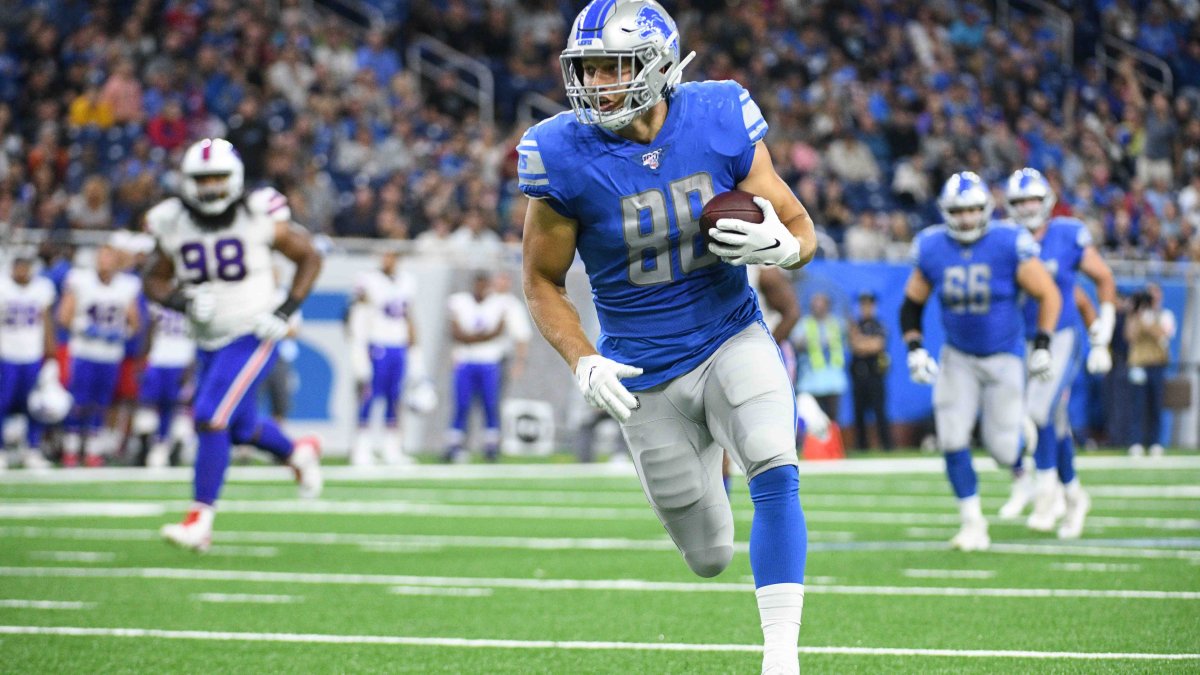Every year, there is a group of players who I want to be overweight on versus the field at their average draft position (ADP). This group forms the bedrock for my roster construction strategies and often determines how my fantasy season goes.
For the earlier rounds, I typically diversify due to the number of quality options. However, there is an inflection point each season where I gradually turn up the roster frequency versus my peers.
For 2021, my goal is to leave the first two rounds with an anchor RB and either an elite WR or an elite tight end. The other option is double-tapping running back given the wealth of upside receivers who can be targeted from Rounds 3 through 9.
I have broken down my strategies in detail by player position, draft position and put these theories into play in sizeable national redraft contests like the FFPC.
Another way to think about this article is if I could only draft one team, these are the players I would be aggressively pursuing.
Click here for more PFF tools:
Fantasy Draft Kit | PFF Betting Dashboard | PFF Fantasy Rankings
PFF Fantasy Projections | NFL Premium Stats | Win Totals Tracker
Round 1
RB AARON JONES, GREEN BAY PACKERS
Jones is my RB4 and can be drafted at the end of Round 1. He has finished as the RB2 and RB5 (14 games) in PPR formats over the past two seasons.
A.J. Dillon will be a factor because he takes over the vacated rushing attempts from Jamaal Williams – however, Jones is in line to pick up the two-minute offense and some of the long-down-and-distance work.
The 27-year old ran a route on 44% and 49% of passing plays the past two seasons, which should jump to the 65–70% range for 2021. Now, pair that number with his 22% and 24% target-per-route rates, and you have the ingredients for a target share north of 18%.
In simpler terms, you have the recipe for an RB1 overall campaign.
Backs who have enjoyed that fantasy recipe plus at least 175 carries since 2011:
| Player | Season | Age | Route % | Targets per Route | Target Share | PPR | Fantasy Finish |
| Alvin Kamara | 2020 | 25 | 60% | 30% | 20% | 378 | RB1 |
| Christian McCaffrey | 2019 | 23 | 80% | 24% | 21% | 469 | RB1 |
| Saquon Barkley | 2018 | 22 | 74% | 24% | 20% | 384 | RB1 |
| Christian McCaffrey | 2018 | 22 | 74% | 25% | 22% | 383 | RB2 |
| Alvin Kamara | 2018 | 23 | 61% | 29% | 19% | 348 | RB4 |
| Ezekiel Elliott | 2018 | 23 | 67% | 22% | 17% | 331 | RB5 |
| Le'Veon Bell | 2016 | 25 | 63% | 23% | 15% | 317 | RB3 |
| Matt Forte | 2014 | 29 | 76% | 23% | 19% | 347 | RB3 |
| Jamaal Charles | 2013 | 27 | 62% | 24% | 17% | 381 | RB1 |
| Ray Rice | 2011 | 25 | 63% | 27% | 18% | 373 | RB1 |
Some doubt Jones because of the possibility that Dillon takes more carries inside the five-yard line. While that is possible, I don't see a scenario where Jones loses all of that work. I expect him to handle 50 to 70% of those carries while Dillon gets the rest.
The most significant cause for concern is Jones' age (27), as most of the backs posted monster totals at 25 or younger. Luckily, he is nowhere near the 1,500 attempt milestone – he only has 718.
Why? He is good at it! He has punched in over 50% of those attempts for scores every season of his career. Being inside the five-yard line is about more than being big, and Jones is like Kamara in the way he finds optimal running lanes to punch the ball into the end zone.
Once McCaffrey, Dalvin Cook, Kamara, Travis Kelce, Davante Adams, Tyreek Hill and Stefon Diggs are off the board, draft Jones at the end of Round 1 with confidence.
Exclusive content for premium subscribers

WANT TO KEEP READING?
Dominate Fantasy Football & Betting with AI-Powered Data & Tools Trusted By All 32 Teams
Already have a subscription? Log in




 © 2025 PFF - all rights reserved.
© 2025 PFF - all rights reserved.